Parsley’s worldwide use in the kitchen befits its popularity as the most commonly used herb.
Its name, Greek in origin, translates “rock celery,” and this member of the celery family has been used throughout history as a medicinal herb.
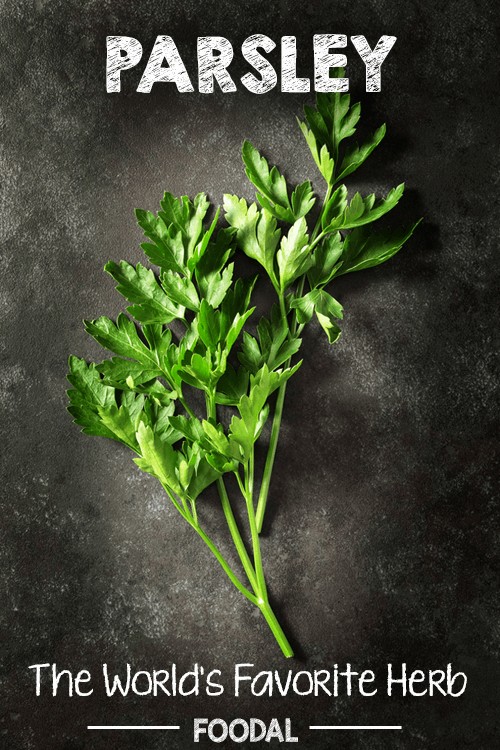
Native to the eastern Mediterranean, parsley has been cultivated for more than two thousand years for its healing properties. It was used medicinally long before it took its place in the kitchen.
Historical Use
Considered sacred by the ancient Greeks, parsley was used to adorn its favored citizens and decorate the tombs of the deceased. Believed to have sprung from the blood of their beloved hero Archemorus, the herb itself was never consumed.
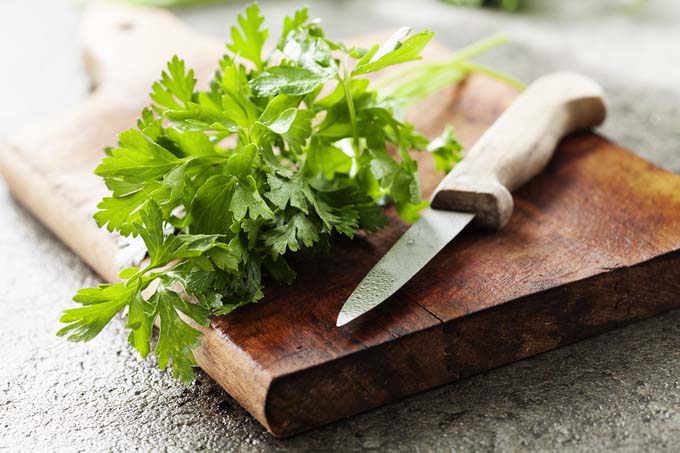
In contrast, the Greek people placed huge medicinal value on the seeds and roots, which were used in infusions to alleviate the symptoms of kidney and bladder problems.
Ancient Romans used the herb as a garnish, similar to the way we see it displayed on the dishes of today’s restaurants. The plant was also used to make the garlands worn during feasts and believed to have the power to ward off intoxication and evil.
I for one believe they just liked wearing them!
Regardless, the Romans didn’t consume the herb either, and even went so far as forbidding its presence around pregnant women. Somewhere along the way, the Romans had aligned the presence of parsley and pregnancy with an infant’s being born epileptic.
Unbelievably, that claim was made again thousands of years later in 1805 by Phillip Miller in The Gardeners Dictionary. In his dictionary, Miller cites the consumption of parsley in small birds as a cause of death, and that consumption by human beings can result in injured eyesight and possibly be the cause of epilepsy.
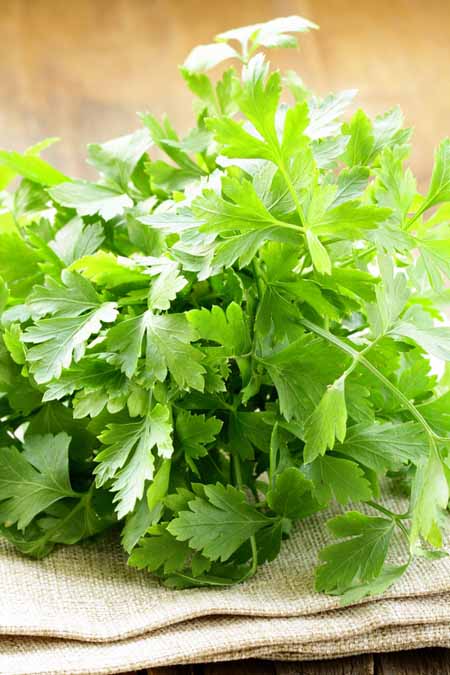
The Hebrews used the herb during Passover celebrations as symbol of rebirth.
It is believed that at some point during the Middle Ages, parsley finally made its entrance into the culinary world as a food rather than a decoration. Charlemagne grew the herb on his estates, and favored the addition of its seeds to his favorite cheeses.
Medieval party goers placed it on banquet tables and wore it around their necks to ward off foul odors. Medieval doctors praised its use as an anecdote for poison, and medieval herbalist, St. Hildegard of Bingen prescribed parsley infused wine as a cure to improve circulation and treat heart ailments.
During the Tudor reign, its leaves were used extensively as a remedy for baldness.
Uses in Modern Times
Today, parsley is hailed as a diuretic, a blood purifier, and detoxifier. Regular consumption is said to aid in digestion, boost metabolism, and stimulate the appetite.
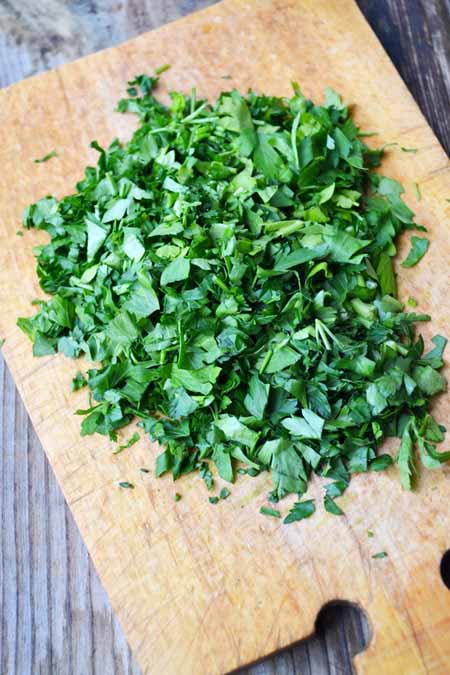
In addition, there are claims that the herb can actually reduce your heart rate and control blood pressure. An invaluable source of vitamins and minerals, parsley contains large amounts of vitamins A and C (known cancer fighters), and its decidedly high content of histidine (known to inhibit the growth of tumors).
The plant’s nutritional value also includes potassium and folic acid (known to prevent cardiovascular disease), in addition to calcium, manganese, and iron.
The consumption of this plant can also be beneficial in women’s health concerns. Often, women take high doses of calcium supplements to lessen their chances of contracting osteoporosis.
Unfortunately, this supplement can also interfere with the body’s natural ability to absorb manganese which is in fact a bone builder. The leaves contains both manganese and calcium, not to mention that when paired with foods such as shellfish and whole grains actually enhances the absorption of manganese.
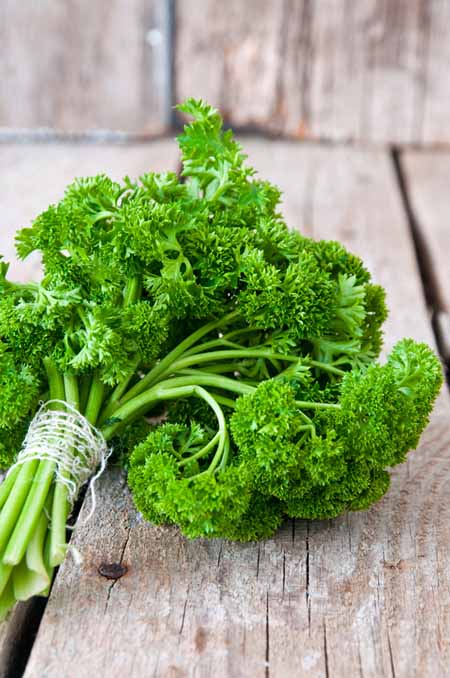
Women should avoid the consumption of parsley while pregnant because its essential oils may stimulate uterine contractions. After childbirth, the opposite would be true as the plant’s properties promote lactation and tone the uterus.
Cultivation
Cultivating parsley is not for the impatient, and what really is a quite simple process may also be a challenge. A biennial herb, this plant often doesn’t come back as expected and more often than not needs to be planted annually.
Initial planting should be done indoors and in pots as the plant’s germination period lasts from three to four weeks. Always sow several seeds in your pots, making sure the pot has adequate drainage holes. Soil should be nutrient rich; compost makes a great addition to any soil.
Many seeds will not germinate, and after sprouting only the healthiest shoots should be kept. Thin seedlings should be pulled.
Parsley loves the sun, and it’s advised that it be placed in full sun for a good portion of the day. Germination requires warm temperatures, so it is also advised that you keep your pots indoors rather than move them outside.
Shoots will come up slowly and unevenly and if planted early enough will be ready to transplant into the garden late in the spring. It is said that six to ten plants can accommodate an entire family. Leaves should be picked off a few at a time as needed.
Related to the carrot, celery, and parsnip families, parsley is a low growing plant with fine green leaves. Filled with beneficial and necessary nutrients, it is usually consumed in such small amounts that it has little or no effect on a person’s health.
With all of the benefits it provides, it is no wonder that today parsley is utilized far differently than in the past. Whether straight from the garden, the pot, or your favorite grocer, this plant remains the world’s favorite herb.
Are you a gardener? If so, check our our parsley growing guide over at our sister site, Gardener’s Path.
The staff at Foodal are not medical professionals and this article should not be construed as medical advice. Foodal and Ask the Experts, LLC assume no liability for the use or misuse of the material presented above. Always consult with a medical professional before changing your diet or using supplements or manufactured or natural medications.
Photo credits: Shutterstock.

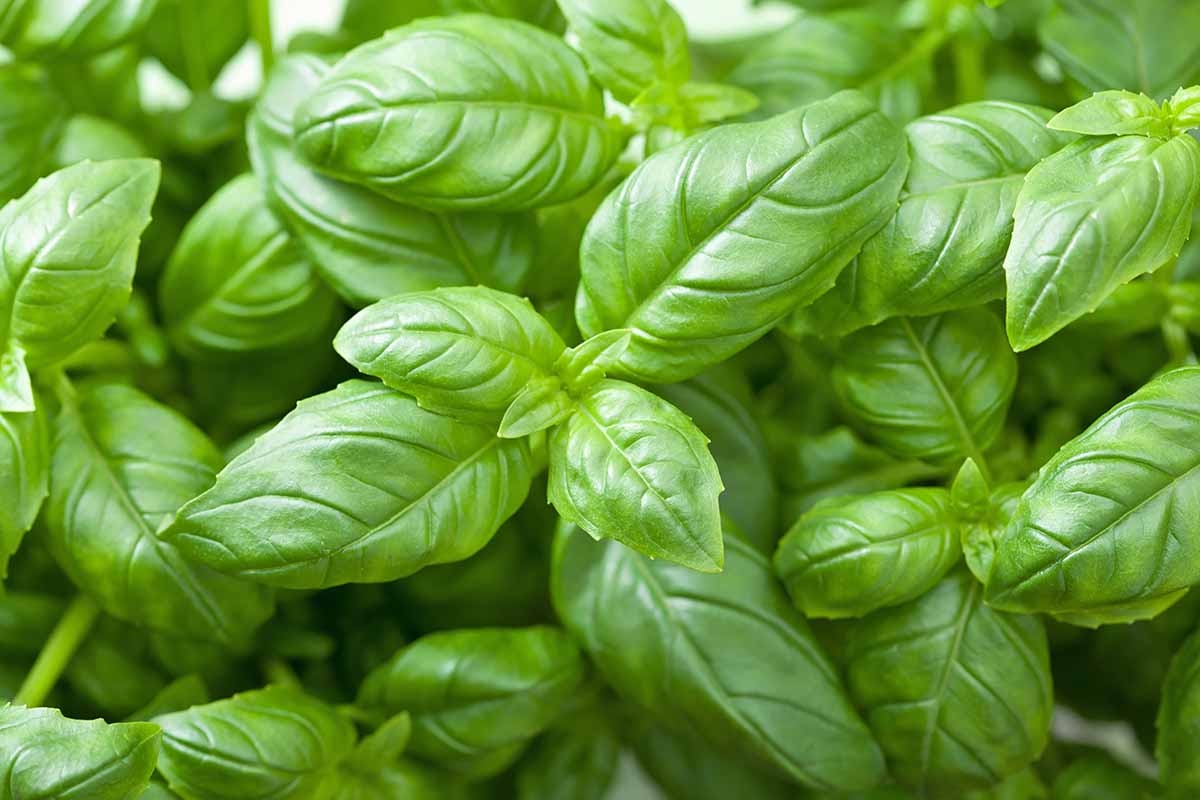
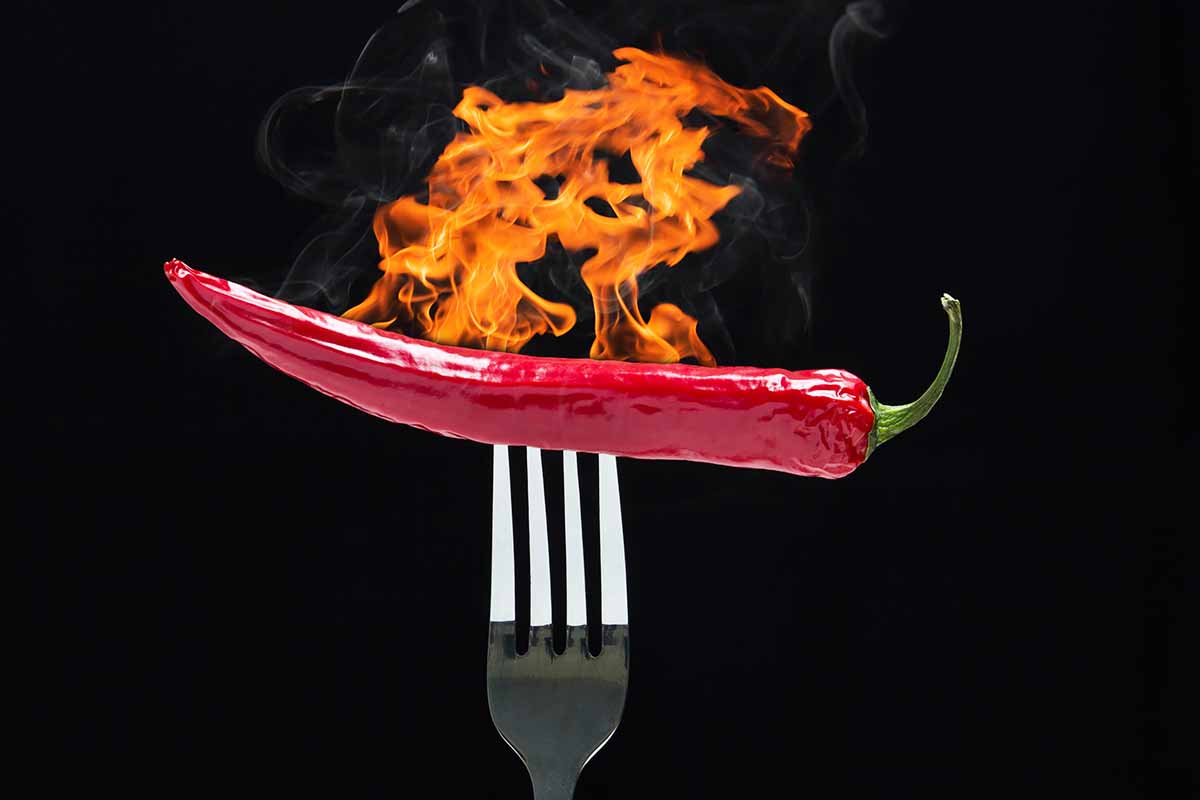
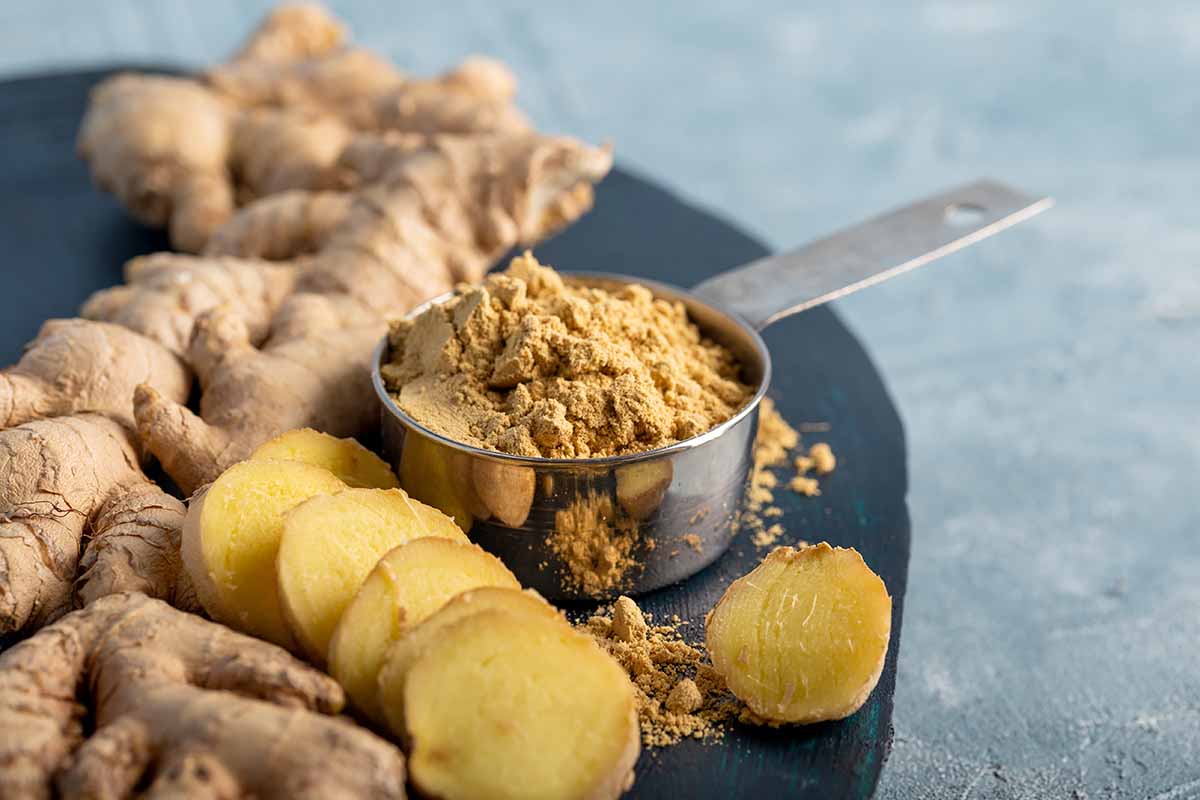
Good thing to know! I am on my 30 weeks of pregnancy and currently on leave at work due to uterine contractions and is currently taking relaxant for my tummy. We always have parsley in the kitchen as my husband loves to use it whenever he prepares his recipe every weekend. Consumption of this might be the best after giving birth!
Rissme,
As it’s taken me so long to respond to this comment, I’ll assume you’re a new mommy. Congratulations…… now you can put that parsley on the shopping list. Wishing you the best!
This is incredibly informative. It encompasses a massive amount of knowledge about Parsley. It’s interesting that it has so many health benefits, and even more interesting that it effects pregnant women so much differently. Although, many other herbs have an enormous amount of healthy properties, so that’s not surprising, and it does make sense that pregnant women would be affected in a different way, given the fact that a lot of foods seem to do that.
It’s also fascinating that the herb has such a long history of ritual and ceremonial use. Many ancient cultural traditions seem odd to us now, which is indicative of their temporary nature. People in the future will probably look back on ours in the same way.
Wow, such amazing wonders of Parsley, a plant that i can easily brush off as weeds…to think that it helps inhibit growth of tumors, a cancer fighter, blood purifier among other accolades…time to hit the grocer’s in search of this priced after plant…i do hope i don’t confuse it for coriander 🙂
dianthare,
I spent years believing parsley to be good for nothing more than presentation and fresh breath. Research left me pleasantly surprised.
Parsley is a very beneficial herb for the amount of vitamin C it contains. It is also wonderfully aromatic and it’s best sprinkled freshly ground onto a variety of dishes from risottos, fish pastas, to stews. It adds lovely colour and fragrance, it’s a must in every kitchen.
Allaballa,
You are CORRECT! And the aroma…… spectacular!
I usually see parsley used as garnish. After the meal, it’s easy to dismiss it as food decor. I never realized it was so versatile and healthy. Maybe I should incorporate it to my dishes more often.
Buttercup,
I too viewed parsley as nothing more than a garnish…… it is easily dismissed, but it shouldn’t be. It’s loaded with goodness!
I didn’t know it was used as a medicine. I use it in everything I cook just a force of habit I suppose. I like to sprinkle it on the garlic bread I make. It just gives any recipe that added color, and taste.
Karmaskeeper.
Isn’t it satisfying to know you were doing something good all along? You must be very artistic! Thank you for reading and commenting. It is appreciated! 😀
I used to think parsley didn’t really have much flavour, before I got in the habit of using fresh rather than dried herbs. Now it’s one of my favourites. It may be more subtle than things like dill or coriander, but it complements such a wide range of flavours that’s it’s an absolute kitchen staple – so good to find out it’s packed full of health benefits too.
You’re right about it being a pain to grow, though. I’ve had it in my garden several times, but it never re-sprouts after winter and even though you’re supposed to be able to grow it in pots mine always seems rather fussy about it and doesn’t produce very much foliage that way.
Sugarsnap1982- When I was young, I used to set the parsley aside in a restaurant, thinking it nothing more than decoration. Today, I find a way to add into most meals. Like you, I enjoy its subtle flavor…… but I do love dill 😀 One of my favorites! Thank you for reading and commenting! Hope you enjoyed….
I’m starting to feel like cilantro is nipping at the heels of parsley in the world popularity department. It seems like cilantro is becoming the new decorative herb on the plate as well. Personally, not my favourite one at that.
Parsley works for me because it pairs so well with tart. I could eat tabbouleh salad till the cows come home.
Joan- I’m not completely adverse to cilantro, but I’m not at all crazy about the smell….. it might be something I could get used to, but I’d probably not use it by choice. Parsley’s place in my kitchen remains secure! 😉
Really interesting how so many people have an aversion to cilantro. Which is likely why parsley won’t be disappearing anytime soon. If it’s not the smell people dislike it’s because they say ‘the flavour is overwhelming’. I’ve never felt either way about any herb. Everything has its place some in moderation (I love chimichurri so parsley in ABUNDANCE).
Parsley is one of my favorite herbs to grow — no matter that you mention it not for the impatient, it always grew much faster than our other herbs, and so much more densely! One thing I’m left wondering everytime I am confronted with varieties of parsley though is whether they have significant differences between flat and curly, for example on the way of taste or benefits.
Crayonelle,
Flat-leaf parsley is zestier, more robust. It’s generally preferred for cooking, whereas, curly leaf basil is generally thought of as a garnish. Some people claim that curly-leaf basil is more bitter than its flat counterpart, I’ve never really noticed that to be true and have interchanged both types without disastrous results. I hope this answers your question….. have a great day!
Wow, who knew? I had no idea there was so much to parsley, so thanks for the informative article.
I love parsley. I certainly understand why it’s such a favorite, but I just never realized it had so many other properties.
I need to save this page for reference.
Zyni- You are most welcome! Thank you for taking the time to read and comment. Your feedback is most appreciated.
I had no idea of the medicinal value of parsley. It almost sounds like a wonder drug. I didn’t realize it did well in sun, and now that I know, I can plant it in my balcony garden. I was unaware of the seeds and roots being used in treatments for kidney and bladder ailments, so will have to read up on that.
Diane- Good luck with your “balcony” garden and your research! Parsley is both good for your palate and your health! I vividly remember the days when I pushed it to the side of my plate thinking it nothing more than decoration! Shame on me…. 🙁
Really surprised no one mentioned tabbouleh yet!
One of my all time favorite dishes, it’s a fresh and simple parsley salad.
Can anyone share a good tabbouleh recipe that they can personally say they had success with? I live near a take out place that makes it so I never make it myself but I think I should try.
I’ve been hearing a lot about parsley recently, and I usually only see it as a garnish, or in tomato sauces. It is a great and diverse herb. How much of it do you need to consume though? I never see it used in large quantities. Very interesting to see the superstitions associated with it in the past. I wonder how many other plants were thought to have magical properties.
Thank you for the growing information, as well.
Never actually tried parsley in my dishes, I think it’s kind of hard to get a hold off here – only option for me is import, and that’s going to be very costly. I would love to use this herb though! 😀
I love parsley. I use it in my cooking frequently. I mainly use it to make delicious and healthy soups. It’s also used a lot in Indian cooking. Especially with dishes like Chicken Kurma and Chicken Curry. Absolutely delicious!
Wow, I didn’t realize the health benefits of parsley. I’ve always loved cilantro and basil for the powerful flavor they add, but have never fallen in love with parsley. Since reading about the numerous health benefits, I will try to incorporate it into my diet. Maybe, I can juice it. Has anyone ever tried juicing it?
Parsley is one of my favorite herbs but I have such a hard time growing it. Does anyone have any advice. I’ve tried growing it both indoors and out doors but I find the leaves turn brown, start to droop and eventually die within a few days. I have no problem keeping other herbs like basil and mint alive… but my parsley never seems to stay.